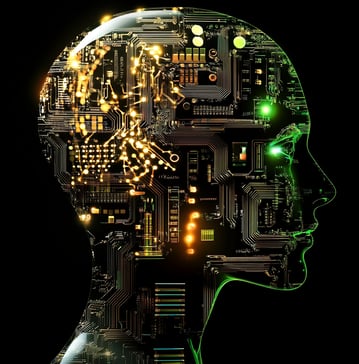Top 10 AI Skills for Better Job Opportunities in the Future
AI Skills


The integration of artificial intelligence (AI) across various sectors is changing the job market. Mastering key AI skills is essential for professionals aiming to enhance their career prospects. Here are the top 10 AI skills that will improve job opportunities in the future:
1. Machine Learning
Machine learning (ML) is fundamental in AI, enabling computers to learn from data and make decisions. By understanding ML, professionals can develop models that identify patterns and predict outcomes, which is crucial for data-driven decision-making in businesses. Skills in statistical methods, data structures, and algorithms are essential for success in this field.
2. Deep Learning
Deep learning, a branch of ML, uses neural networks with multiple layers to analyze and process complex data inputs. This skill is vital for tasks like image recognition and natural language processing. Mastering deep learning involves working with frameworks such as TensorFlow and PyTorch and understanding concepts like neural networks and backpropagation.
3. Natural Language Processing (NLP)
Natural Language Processing (NLP) focuses on the interaction between computers and human language. It enables machines to understand, interpret, and generate human language, which is essential for developing chatbots, virtual assistants, and language translation services. Skills in linguistics, along with proficiency in Python and NLP libraries like NLTK and SpaCy, are important for anyone interested in this field.
4. Data Analysis and Data Science
Data analysis and data science are critical for extracting insights from data. These skills involve collecting, processing, and analyzing large datasets. Knowledge of statistical analysis, data mining, and visualization tools is crucial. Data scientists need to be proficient in programming languages like Python and R, and in using tools like SQL for managing and querying databases.
5. Python Programming
Python is the preferred programming language for AI development due to its simplicity and the extensive libraries it offers for AI tasks. Python's versatility allows for the development of a wide range of applications, from data analysis to machine learning models. Mastering Python is essential for anyone looking to enter the AI field.
6. Big Data Technologies
Big data technologies are vital for handling and analyzing large volumes of data. Tools and frameworks like Apache Hadoop, Spark, and Kafka are essential for developing scalable AI solutions. These technologies enable real-time data processing, which is critical for applications in areas such as finance, healthcare, and social media analytics.
7. Cloud Computing
Cloud computing provides the necessary infrastructure for storing and processing data on a large scale. AI models require significant computational power, which cloud platforms like AWS, Google Cloud, and Microsoft Azure provide. Skills in cloud computing are vital for deploying scalable and accessible AI applications, making it a key area for AI professionals.
8. AI Ethics and Policy
As AI becomes more integrated into everyday life, understanding the ethical implications and regulatory frameworks surrounding AI is increasingly important. AI ethics involves ensuring that AI technologies are used responsibly, addressing concerns related to privacy, security, and societal impact. Professionals with knowledge in AI ethics and policy can help guide organizations in developing and implementing ethical AI solutions.
9. Computer Vision
Computer vision is an AI field that enables machines to interpret and understand visual information. It has applications in facial recognition, autonomous driving, and medical image analysis. Skills in computer vision include understanding image processing techniques and working with frameworks like OpenCV and TensorFlow. This field is growing rapidly, making it a valuable skill for AI professionals.
10. Robotic Process Automation (RPA)
Robotic Process Automation (RPA) involves using software robots to automate repetitive tasks. RPA is transforming industries by increasing efficiency and reducing costs. Skills in RPA involve designing and implementing automation workflows using tools like UiPath, Blue Prism, and Automation Anywhere. RPA specialists play a crucial role in streamlining business processes.
These top 10 AI skills are in high demand as organizations seek to leverage AI for competitive advantage. Professionals who invest in developing these skills will be well-positioned to seize new opportunities and drive innovation in their respective fields. Whether you are an experienced professional or just starting your career, mastering these AI skills can significantly boost your job prospects in the evolving job market.
